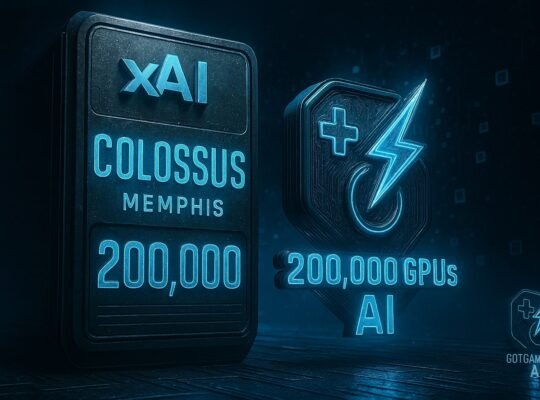We’re living through a moment when artificial intelligence is no longer some far-off curiosity or niche research project—it’s reshaping companies, redrawing career maps, and forcing even the most powerful tech giants to rethink their priorities. Three stories currently dominate the headlines: Reddit’s vow to keep humans at the center of its platform, top executives sounding alarms over imminent white-collar job losses, and Microsoft’s bold recalibration—trimming thousands of roles to fuel an $80 billion AI infrastructure build-out. Each move shines a different beam on AI’s accelerating influence, from cultural integrity to economic upheaval and corporate strategy. The key question is simple yet profound: as AI systems grow ever more capable, do they empower people or eclipse them?
1. Reddit’s Human-First Pledge: Authenticity over Automation
Reddit turns 20 this year, and rather than rest on nostalgic laurels, its leadership has staked its future on one principle: AI on Reddit exists to serve users, not supplant them. The new “Reddit Answers” feature can scan vast troves of community discussion to surface concise summaries, but every answer snaps back to the original threads. No more black-box responses that leave you guessing where a quote actually came from; Reddit insists on transparent sourcing.
Why this matters: In an age of deepfakes, bot farms, and algorithms that twist nuance into distortion, Reddit’s stand feels almost rebellious. It’s a reminder that not all platforms are chasing the slickest AI headline or highest engagement metrics—some still value the gritty, human-generated stories and debates that built the internet’s social fabric in the first place.
My take: This is more than PR posturing. By suing an AI startup for using scraped Reddit posts without permission, the company is drawing a line in the sand: your contributions to our community aren’t free fodder for someone else’s black-box model. That precedent could inspire other platforms to reclaim control over their data and challenge the notion that “public” means “free to exploit.”
2. C-Suite Crystal Balls: Saying Goodbye to White-Collar Roles
For years, executives dangled AI like a shiny toy—promising greater efficiency, smarter analytics, maybe even a few new products. What they didn’t say as loudly was which jobs would vanish first. Now CEOs at major corporations are openly forecasting steep white-collar layoffs: half of finance roles, marketing analysts, even legal researchers could see their tasks automated out of existence.
Why this matters: When the people with the biggest megaphones in business start warning about job displacement, it’s no longer a speculative sidebar—it’s a boardroom imperative. Companies are already mapping which roles can be offshored to data centers rather than staffed in downtown skyscrapers.
My take: This is the wake-up call workers need. Resumes stacked with buzzwords won’t suffice; the future belongs to those who can partner with AI—crafting prompts, auditing outputs, managing edge-case scenarios. It’s not about battling the machines; it’s about learning to ride shotgun as they drive. Governments and education systems must urgently redesign training for this world, because conventional degree-and-internship pathways won’t cut it when a generative model can draft a basic contract or churn out a quarterly report.
3. Microsoft’s Big Bet: Job Cuts to Fuel AI Dominance
In a move reminiscent of earlier tech pivots, Microsoft has announced it will eliminate roughly 9,000 positions—about 4 percent of its workforce—to free up capital for constructing new AI data centers. These hyperscale campuses, optimized for cutting-edge GPUs and custom AI accelerators, are the backbone of training the next generation of models. Meanwhile, impacted employees face a sobering reality: even at one of the world’s most admired employers, no role is entirely safe when corporate strategy shifts that dramatically.
Why this matters: Microsoft isn’t the only firm building out massive AI infrastructure, but it’s one of the few willing to slash staff in the name of doubling down on AI. This sends a clear signal to investors—and rivals—that the future of computing belongs to those with the deepest pockets and the most real estate in key regions.
My take: There’s a bittersweet irony here. On one hand, reinvesting in AI capacity could unlock breakthroughs in climate modeling, drug discovery, and educational tools. On the other, we’re watching a transfer of wealth and opportunity from human capital into silicon and code. Unless there’s a concerted effort to retrain and reallocate displaced workers into these new data-center roles—or into entirely new fields—the social cost could be immense. Tech philanthropy and policy innovation need to keep pace with these corporate gambits.
⚙️ Technical Deep Dive: Beyond the Buzzwords
- Summarization vs. Source Transparency: Reddit’s AI summarizer isn’t novel; search engines have been doing it for years. What sets it apart is the insistence on always linking back to verbatim user posts. That preserves context and accountability—a critical guardrail as AI systems become more persuasive yet prone to subtle distortion.
- Skillset Shifts in White-Collar Work: Modern LLMs excel at structured tasks—contract templates, financial summaries, initial design drafts. Humans excel at ambiguity, ethics, and strategic judgment. The emerging sweet spot is the hybrid professional: part prompt engineer, part ethical overseer, part domain expert.
- Hyperscale Infrastructure Economics: Building an AI data center isn’t just about buying racks of GPUs. It’s about power management, cooling innovations, specialized cooling fluids, and leveraging on-site renewable energy to handle the massive electricity draw. Microsoft’s new campuses are likely testing grounds for these next-generation facilities.
⚖️ Broader Implications: Society at the Crossroads
- Data Ownership and Consent
As platforms litigate over scraped data, we may see a renaissance in user control—digital rights management for the content we generate daily. This could reshape how AI companies assemble training corpora, potentially slowing some of the most aggressive model builds but also fostering more transparent partnerships. - Economic Inequality
AI’s benefits—efficiency gains, novel products, scientific insights—are real. But without deliberate redistribution mechanisms, they risk widening the gap between highly skilled “AI collaborators” and everyone else. Progressive tax policies, universal training credits, or even AI-driven public services could help bridge that divide. - Regulatory Momentum
Lawmakers around the world are waking up to AI’s double-edged sword. From new copyright frameworks to antitrust investigations, regulators are starting to ask whether current rules suffice to manage technologies that can replicate, remix, and even replace human output at scale.
🧩 Conclusion: Charting the Path Forward
We stand at a pivotal juncture. AI’s promise—to amplify human potential, accelerate breakthroughs, and tackle complex problems—is undeniable. Yet the path to that future is littered with ethical land mines: data rights, labor displacement, centralization of power. Reddit’s human-first stand, CEOs’ blunt job forecasts, and Microsoft’s infrastructure pivot each spotlight a different piece of the puzzle. The central challenge for the next decade is ensuring that AI serves as a co-pilot for humanity, rather than its captain. That will require collaboration across tech companies, policymakers, educators, and, critically, the workforce itself. The choices made now will shape whether AI becomes the most transformative tool for human progress—or the most disruptive.






